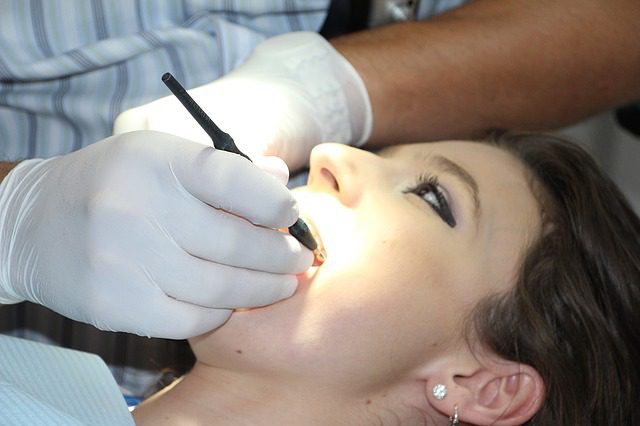So your dentist tells you that you need oral surgery, and they refer you to a local oral surgeon to do the job. Perhaps you need to have some wisdom teeth extracted. Maybe you’ve suffered facial trauma and need surgery to reconstruct your mouth and jaw. Perhaps you need dental implants and require a dental bone graft done for them to be successful. Whatever type of oral surgery you’re staring down the barrel at, it can be a bit scary to wonder about… It’s estimated that nearly a third of people living in the United States have some form of anxiety when it comes to visiting their dental doctor. Whether it’s about a simple checkup or something more involved like getting quality titanium artificial teeth plugged into your mouth, dentophobia is way more common than some would initially think.
Are you feeling nervous? You don’t have to be. Thanks to modern advancements in sedation dentistry, oral surgery is actually quite painless. There are tons of effective oral surgery sedatives out there, each of them being most effective in different conditions. And the best part is that when they’re administered by a professional oral doctor, they’re completely safe. You’ll barely feel a thing!
As a licensed maxillofacial surgeon serving Cincinnati, Columbus, and Dayton, Dr. Puckett is certified to offer all forms of sedation dentistry for oral surgery. Your comfort and pain management is his top priority. Our staff is often called caring and compassionate, and we’ll do our best to aid in any way we can. And we have plenty of oral surgery sedatives that work for patients experiencing anxiety. Dr. Puckett goes above and beyond to help you feel relaxed, comfortable, and ensure that whatever surgical procedure is performed on your mouth, it’s painless.
So, what are your pain management options for oral surgery? Here’s a brief overview of the sedation dentistry we offer to make getting oral surgery a breeze.
Local Anesthetic: Numbing the Site of the Procedure
Local anesthetic for oral surgeries works great for a number of cases, and it can be administered quickly and efficiently. This is a minimally invasive way to administer anesthetic, and it’s the same pain treatment you’d expect to get during a dental appointment. Localized anesthesia for tooth and mouth operations is not the same thing as an oral surgery sedative that knocks you out. In fact, you retain feeling and alertness in your body everywhere except the injection site. An anesthetic (such as lidocaine or Novocain) is injected in and around the surgery area with a super tiny syringe. You’ll feel numb. Aside from the initial pinch, you really shouldn’t experience discomfort. If you do, don’t be afraid to tell your oral surgeon. We can always apply more. We want you to be comfortable.
Many of the treatments we do at our oral surgery clinic — including teeth extractions — can be done with local anesthetic alone. In fact, we can even remove your wisdom teeth with local anesthetic — though most patients prefer additional sedation methods. It’s really up to you. If you’re looking for alternatives to sedations used before oral surgeries that put you into a deep sleep, talk to us. We’ll be glad to discuss treatment options that align with your care needs like localized sedatives or something else. Your state of mind plays a factor in how “painless” a mouth surgery is, so if you need other sedation to help you stay calm throughout the oral surgical procedure. Don’t be a hero.
Nitrous Oxide with Local Anesthetic: Helping our Patients Chill Out
Nitrous oxide is a nice additive that can be administered during oral surgery to help you relax and ease your anxiety. It is generally done in conjunction with a local anesthetic. We typically use it for fairly simple oral surgeries, though we might use it for more complex procedures like wisdom teeth extraction if you prefer a local anesthetic over a higher form of sedation. The nitrous is given to you via an oxygen mix through a rubber nozzle that gently fits over your nose. We can adjust the amount given to match your comfort and anxiety levels.
If you have extreme dentophobia, nitrous oxide is probably one of the better sedatives administered before oral surgeries that help ease anxiety. Again, this isn’t the type of mouth surgery anesthesia that puts you under, but rather something that makes you giggly and relaxed. It’s generally considered to be safe and effective with very few possible side-effects. It has a quick onset, and once the mask dispensing the sedative is removed, it wears off just as quick, allowing you to get back to your fully cognizant, slightly-less-giddy self.
IV Sedation: Deeper Sedation for More Involved Procedures
Commonly known as “twilight anesthesia,” intravenous (IV) sedation is a deeper form of anesthesia. You won’t technically be asleep, but you’ll be very groggy, with likely little to no memory of the oral surgery experience once you come to. During the procedure, you’ll be able to respond to commands, but you’ll generally be in a dreamlike condition, such as when you are woken up in the middle of the night but aren’t actually fully awake. Dental IV sedation is used for more complex procedures like wisdom teeth removal, the placement of titanium artificial tooth implants, and other more extensive operations where an oral surgeon will need to be in the mouth operating for an extended period of time. This is about as close as you would get to being in a similar state that general anesthesia produces without actually being asleep.
IV sedation is administered through an intravenous catheter. Medicine is titrated to achieve a period of brief but effective sedation. Your vital signs are closely monitored during and after the procedure. In general, you’ll feel extremely relaxed and completely unbothered by what is happening during the oral surgery experience. It’ll almost be like you’re not even there. This is a great sedative administered by oral surgeons for patients who present with extreme, debilitating dentophobia. It does everything but put you fully under, which is something we only want to do when absolutely necessary. IV sedation is a great middle ground between nitrous oxide and general anesthesia.
General Anesthesia: For Complicated Oral Surgeries
When you think about being “put to sleep” during a surgical experience, you are thinking about general anesthesia. It’s our strongest sedation method available for oral and maxillofacial surgery. We don’t like to use it unless we have to, as it’s a highly-effective anesthesia used for oral surgeries. You’ll experience a more profound anesthesia experience with no memory of the actual procedure. We typically reserve general anesthesia for our most intense oral surgery procedures, including impacted wisdom tooth removal, dental implant placement, face or jaw reconstruction, or any larger oral surgical procedure. On the plus side, you’ll come to in what feels like the blink of an eye with your oral surgery a total success.
General anesthesia takes a bit to fully recover from. Bring a friend or family member with you during your appointment — you’ll need someone to drive you home, as you’ll be very groggy following the surgery. General anesthesia used in oral surgeries takes a while to fully come to from. Most patients can expect to be mildly “out of it” for a handful of hours after the operation. Generally, patients report feeling completely refreshed after they get a chance to sleep it off from the comfort of their own home.
Nervous About Oral Surgery? Tips to Relax
If you’re feeling nervous about your upcoming oral surgery, it’s okay! That’s perfectly natural. We want you to feel as relaxed as possible. Here are some things you can try to help your visit.
- Bring a comfort item with you — perhaps an afghan, lucky charm, maybe even a stuffed animal. It will help you relax and feel at ease.
- Feel free to bring in your own music, if you’ll be awake during the oral surgery. Choose something relaxing, such as classical or meditative music. This, too, can help you relax.
- Practice meditation and breathing exercises prior to your appointment. Being mindful can help you ease through your fears so you’ll feel centered and content throughout the oral surgery procedure.
- Talk with your surgeon about it. An oral surgeon who’s compassionate with patients will totally understand your anxieties and fears surrounding dental operations. Chances are high they can and will do their part to help you relax. And sometimes, talking about it really does help with the feeling of unease.
Relax! You’re in Good Hands
Dr. Puckett is strongly committed to making your oral surgery experience as painless as possible. We understand the idea of oral surgery can be intimidating, especially if you are being put under or experience anxiety. We do everything we can to make your visit as relaxed and comfortable as possible. Yes, oral surgery can — in fact absolutely should — be a painless experience. Relax! You’re in good hands. Your pain management is our top priority.








